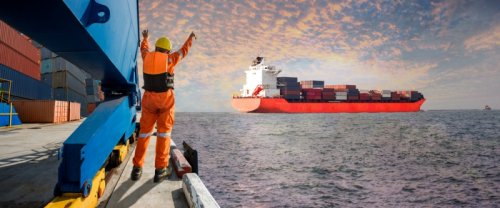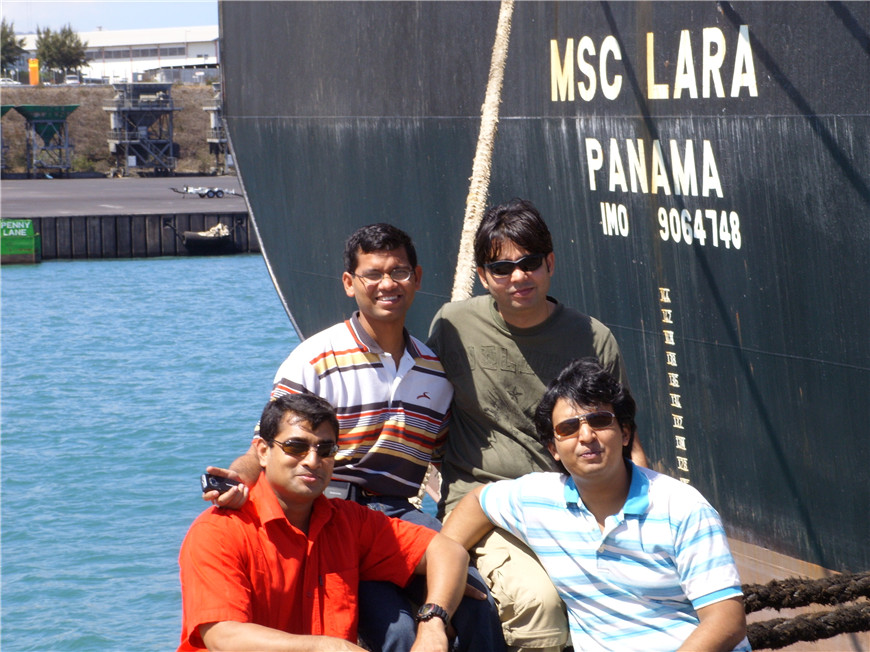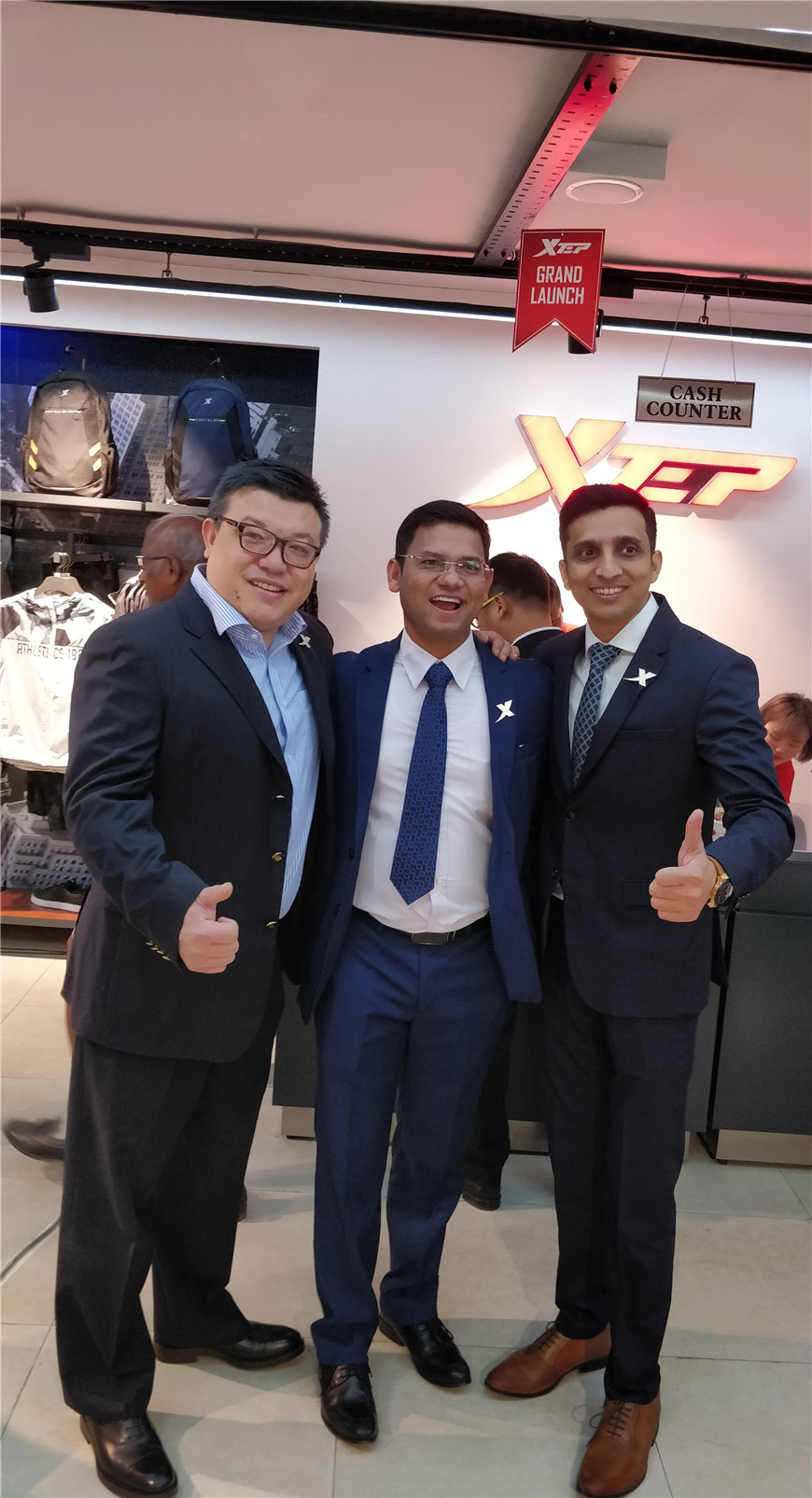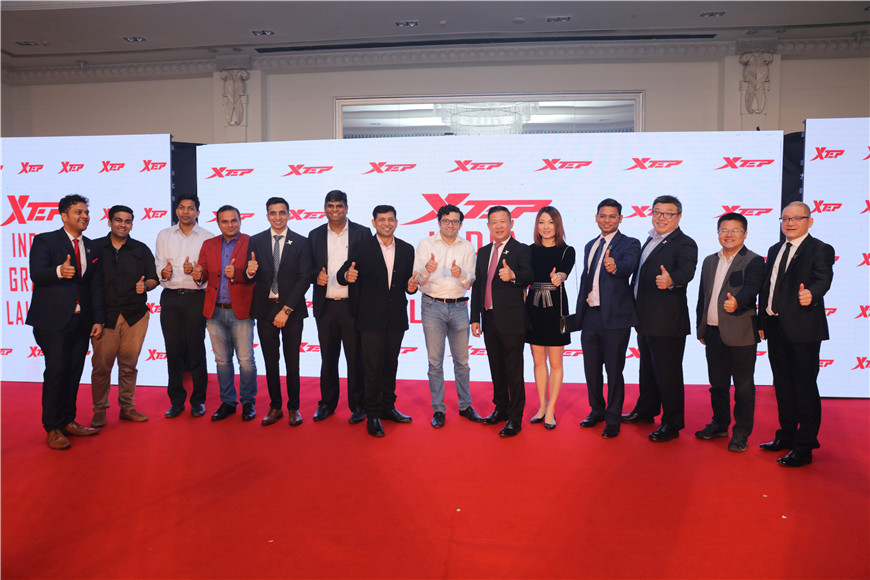From Sailing the High Seas to Navigating Cross-Border Deals

By Charmaine N Clarke
Ritwik Ghosh first ‘discovered’ China in 2001, when he was a navigator of cargo ships that moved hundreds of thousands of tons of goods across the globe with each trip. He visited China many times after, brief visits that left him with a hazy image of a vibrant, fast growing country. Now, 18 years later, Ritwik’s newest venture VRX Sports has partnered with Xtep, China’s second largest sportswear company, to take the Xtep brand to his native India.
The journey from seafarer to cross-border dealmaker has been anything but predictable. In the last six years alone, Ritwik has had four jobs in three different industries – new energy, real estate investment and entertainment/culture – and three different cities: Beijing, Singapore and Shanghai. But each move has been a step forward in establishing him as a cross-border investment specialist. Along the way he has amassed a wealth of experience in the art of deal making and forging partnerships that work. He thinks his success has a lot to do with the way he does business: he sees his joint ventures as much more than simply financial transactions, and more like marriages that need three things to succeed.
“First is chemistry [between the players], second is the value each side is bringing [to the partnership], and the third factor is the economic sense of [the deal],” he explains. This is just one of the lessons he has learned during his transformation from sailor to private equity investor and cross-border dealmaker.
It all began with Ritwik’s decision, in 2008, to shake things up professionally. He knew he no longer wanted to be a sailor and thought doing an MBA would give him the time he needed to figure out his next step. While at CEIBS it soon became clear that he needed to position himself as a cross-border specialist, leveraging the global knowledge acquired from his years as a navigator. When other classmates went on exchange to schools outside China, he remained in the country, using it as an opportunity to fully immerse himself in the culture and business world, complementing his global breadth with much needed China depth.
His strategy paid off.
 Though he did not have a background in business before his MBA, Ritwik was the first of his classmates to receive a full-time job offer. It was the result of a casual conversation with Javier Romero, the Chairman of GSF Capital, after he headlined an Executive Talk at CEIBS.
Though he did not have a background in business before his MBA, Ritwik was the first of his classmates to receive a full-time job offer. It was the result of a casual conversation with Javier Romero, the Chairman of GSF Capital, after he headlined an Executive Talk at CEIBS.
“We kept in touch [after he spoke at CEIBS] and about eight months away from graduation I got an offer to join him as Investment Executive in the summer of 2010, which led to becoming Country Manager after 6 months of joining,” Ritwik explains. “At GSF, I did cross-border investment of Chinese money, investing abroad.”
Two years later he accepted an offer from Dalian Wanda Group, one of world’s biggest real estate and entertainment companies. He joined them as Senior Manager in charge of M&A in January 2013, in a role that also involved investing Chinese money abroad. He got to work with overseas companies investing in China starting in March 2015, when he became Vice President with responsibility for Acquisitions at SunEdison/Terraform Global, then the world’s biggest new energy company listed on the New York Stock Exchange.
“I have always had a focus on cross-border deals. Doing investments from within China, I saw the direction in which the funds were flowing. Over the last two to three years, India has been a very natural extension for Chinese companies – both from an investment perspective and from a market expansion perspective,” he says, explaining his progression to his current deals. “Now I am investing in sportswear through VRX, and smart home/Internet of Things through Icosys.”
Both ventures focus on the Indian market – and both are partnerships with other CEIBS alumni.
An extension of a strong friendship forged during class projects and competitions, Ritwik initially partnered with classmate Vijay Chowdhary in 2016 on Panchwati Clean Water, bidding for management of a US$10 billion project that was to be developed by Dalian Wanda Group, and signing a consortium agreement with a subsidiary of large Chinese SOE China Nuclear Engineering Corporation, for bidding on constructing a $1.5 billion project in India.
“After that our focus was on finding a successful business in China and taking that business model into India. The Internet of Things (IoT) space was very interesting to both of us and we agreed that we would focus on smart homes, which seemed to be the most mature business model in IoT within China, and had a lot of potential for growth in India,” says Ritwik. “Vijay and I worked on the platform for two-and-a-half years and launched it in October 2018. With Icosys, wherever you are, as long as you have internet connection you have control of your house from your mobile phone.”
It was only natural that they also work together on the Xtep deal. The only catch was neither of them knew anything about the sportswear industry.
Read on as Ritwik explains why he did the VRX/Xtep deal and shares some of the lessons learned during his transformation from a life at sea to one where deals go way beyond geographic borders.
How did the partnership with Xtep emerge?
Xtep has been listed in Hong Kong since 2008 with a market cap of close to US$1.82 billion. They have more than 6,500 physical stores in China. They have come to a stage where they think that they need to ‘go out’ for further market expansion, and India happens to be a natural extension of that market.
In February 2017, CEIBS EMBA 2014 alumnus ‘Leo’ Li Qi reached out to the MBA office to see what advice they had on how he could explore and understand the Indian market. Assistant President Yvonne Li, who was MBA Director when we were studying, connected us, saying that maybe it would be good for them to talk to me.
 The company is in sportswear, a field you knew nothing about. Why did you decide to pursue the deal?
The company is in sportswear, a field you knew nothing about. Why did you decide to pursue the deal?
When Leo and I met in Beijing there was no talk of cooperation because, honestly, the sportswear industry is quite new to me. Before I was more into M&A, investment, bigger sized projects, but we had a very good, friendly discussion. After a couple of weeks he said he would like to visit India and he asked if I could go with him, if I had time, to help him navigate the country both from a cultural and language perspective.
I thought it would be good to help out a fellow alumnus.
My partner Vijay’s family business has tenants like Xtep in their shopping malls so he brings that perspective. The three of us spent a fun week together in India. During the days we visited malls and in the evenings we shared meals together. About a month after we came back to China, Leo suggested that we do something together because Vijay and I knew the market – and being CEIBS alumni there was this natural trust factor.
In July 2017 when we visited the Xtep head office in Xiamen we were received very well. A sign in the lobby said “Welcome CEIBS Alumni Ritwik and Vijay”. Like Leo, who is the Senior Vice President, Xtep’s founding Chairman Ding Shuipo also happens to be CEIBS alumnus. So the strong CEIBS connection was there.
We established VRX Sports in June of 2018, specifically for the Xtep deal. There were about 17 CEIBS alumni, both Chinese and Indian, at the opening launch. Within four months we had our head office in one of the better locations in Bangalore. We had two operational stores, and six more on the way.
Apart from the strong CEIBS connection, what were the other factors that influenced your decision?
We visited their factory, their stores, we looked at the product then went back home to India to do additional background homework. Then we realised this brand has a lot of potential in India because it is a mid-market brand that falls between the likes of Adidas, Nike, and the local brands.
In the Indian market right now, there’s no strong mid-market brand. And at the same time India, in some ways, is lagging behind China by between 5 to 15 or 20 years, depending on the industry. So the Indian market is now evolving. People are aspirational and the middle class is the biggest and fastest growing. Xtep caters to that market. So, for all these reasons, I think Xtep will do great in India.
As the Xtep chairman says, when they started the brand in China about 20 years ago they never thought that today they would have more than 6,500 stores in China. He has told us that we have to be ready to grow with the market in India. So we are prepared to grow very rapidly. Based on the speed at which we have already grown, I think we’ll maintain that momentum. But in terms of hard numbers, we haven’t fixed anything yet.
You have brokered a fair share of deals over the past 10 years, since your CEIBS MBA days. What are some of the elements, apart from the inherent trust that comes from working with fellow alumni, which have made this Xtep-VRX deal work?
It has been very smooth. And I think this is because, first the whole thing didn’t start with an intention of having some form of business partnership. It was just two alumni meeting, travelling together and it led from there.
We have relied on them for their expertise on the products, the supply chain, and the operations. We believe that they know what they’re doing. At the same time, they respect our feedback on the market and on the products that need to be in the market.
There’s still some amount of a learning process that is happening between both sides because in four months we had put together a team of about 25 to 30 people. Of them, six were sent from Xtep head office to India. It’s a new cultural experience and they’re adapting. On the other hand, most of the staff – except one who is an MBA 2017 alumnus whom we have engaged in this venture – are local hires who have never worked with Chinese before. So there is some cross-cultural learning going on. It had its initial bit of challenges, but it’s progressively getting better.
For others who may be looking at doing similar cross-border partnerships, what advice do you have to offer when they are looking for a partner?
The first thing would be to have good chemistry. Because ultimately this kind of partnership or joint venture is more like a marriage. Though the economics matter a lot, it cannot just be a transaction. Even if a deal makes great economic sense, you don’t want to be meeting or interacting with, day in day out, a person you do not get along with.
The economic numbers may look good on paper when you start, but if the chemistry does not work, all the other things will fall apart.
So at the beginning you need to spend a little more time to figure out whether or not you like that person. If you are doing trading or other similar one-off transactions, it’s okay not to have very great chemistry. But for long-term deals, good chemistry is the most important thing. This is where I think my experience in China, and the CEIBS platform, becomes very useful.
The second thing is the value you are bringing to the table. There has to be something complementary, both parties must be bringing some value to the deal. If the value is not very clearly defined or the other person doesn’t understand what value you are bringing, the deal will not happen.
And the third thing is, of course, whether the deal also makes economic sense. Once the first two boxes are checked, there’s always something that should make economic sense.
I have been mentoring MBA students for last few years and this is the same thing I tell them, these three factors.
 Your ties to CEIBS seem to be as strong as ever. You are in business with fellow alumni and you are mentoring students. Why did you initially choose to study at CEIBS and how would you assess the impact that decision has made on your life?
Your ties to CEIBS seem to be as strong as ever. You are in business with fellow alumni and you are mentoring students. Why did you initially choose to study at CEIBS and how would you assess the impact that decision has made on your life?
When I was preparing for my MBA in late 2008, the financial crisis had just started. It boiled down to two choices: Wharton or CEIBS. Before, Wharton would have been the obvious choice. But it was the start of the financial crisis and the CEIBS MBA was then [ranked #8 by the Financial Times]. So with this combination of factors I thought of taking the leap into China.
Today CEIBS is much more well-known globally. But when I came, it was perhaps the best unknown school in the world. So you could only get the feel of it when you came over here. It’s now the 10th year since I came to China and to CEIBS. When I look back, I think that’s perhaps one of the best decisions I have ever made.
It was challenging at times. In the beginning, it was a completely different experience for me in both good and bad ways. The vibrancy, the fast pace of the growth made it quite exciting. But at the same time, the cultural differences, my inability to speak the language, added to my worry. But it got better as time passed.
I had made a conscious decision to move to China instead of the US; so China was a long-term play for me. Very soon I wanted to experience Chinese culture and immerse myself within the Chinese community. Progressively things became easier.
CEIBS has been the platform that has offered almost everything that has happened to me professionally in the last eight years or so. It has provided me with the know-how, the personal branding, and the business connections to get where I am today. At the same time, China has been growing at such a rapid pace that people are moving horizontally, vertically, and diagonally. That means new opportunities are opening up.
In the developed world, if you are working in a big corporation, unless people above you are moving upwards, you cannot move up. Here it’s different. People are moving horizontally, vertically, and diagonally. So opportunities are opening up in ways that you couldn’t have envisaged.











